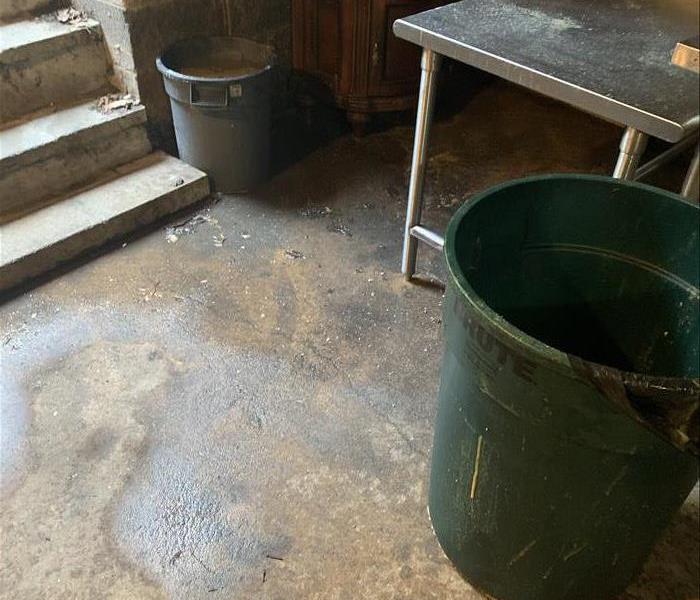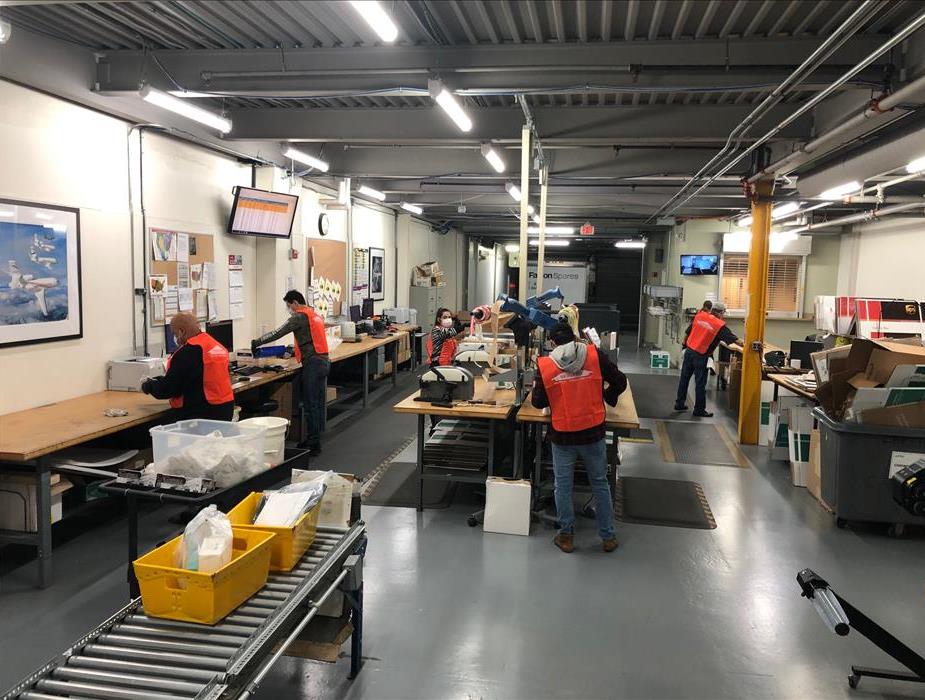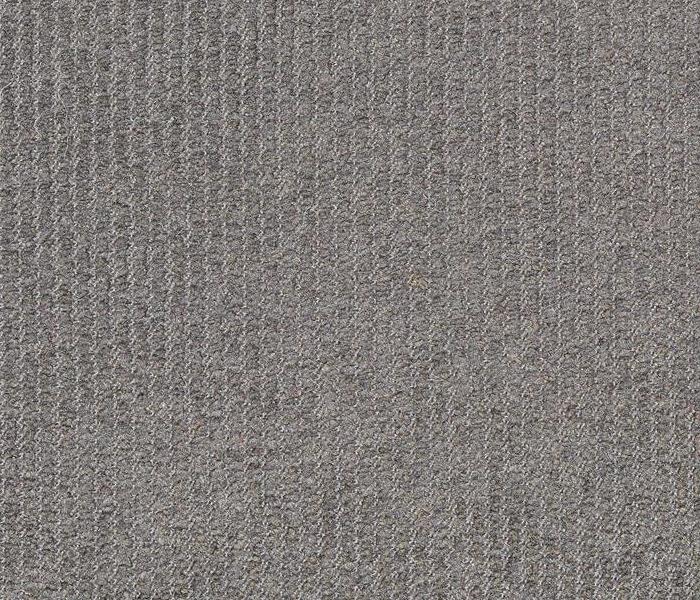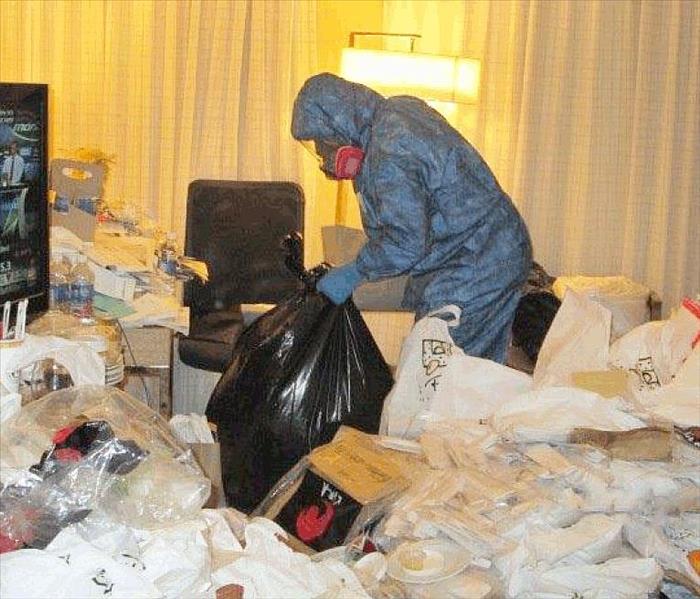Sewage Clean Up Services
5/30/2021 (Permalink)
 Image of a recent SERVPRO of Eatontown/Long Branch sewage clean up in Fair Haven, NJ.
Image of a recent SERVPRO of Eatontown/Long Branch sewage clean up in Fair Haven, NJ.
Sewage leaks in your home or business can happen for a variety of reasons. I found out the hard way that when a toddler flushes a plastic hammer down the toilet it may get past the toilet itself but can get lodged in the pipe further down the system causing a block. This blockage caused a bathtub full of water to come shooting up through the first-floor toilet (lowest point) when it could not exit my home just as Superstorm Sandy was hitting.
All sewage leaks should be considered extremely hazardous to your health. Besides the obvious foul smell and disgusting nature of the material, sewage can harbor a variety of harmful bacteria that can cause illness for but humans and pets.
At SERVPRO, our technicians are trained to deal with these incidents and have the proper equipment to do it safely. Depending on the type of material that is contaminated a variety of equipment and techniques may be used. For example, soft porous material will need to be extracted to remove the contamination prior to sanitization. This is far more complicated than a tile or linoleum floor.
When (not if) you have a sewage mess, call the experts at SERVPRO!
We are cleaning experts!
5/19/2020 (Permalink)
 SERVPRO Team cleaning a commercial building
SERVPRO Team cleaning a commercial building
During this unprecedented time caused by the global pandemic of coronavirus, this is a reminder to our customers that we are specialists in cleaning services, and we adhere to the highest cleaning and sanitation standards.
Specialized Training
We are prepared to clean and disinfect your home or business, according to protocols set forth by the Centers for Disease Control and Prevention. We have years of experience in dealing with biological contaminants, and we will go beyond the scope of work that regular janitorial staff perform on a daily basis.
The CDC encourages cleaning of high-touch surfaces such as counters, tabletops, doorknobs, light switches, bathroom fixtures, toilets, phones, keyboards, tablets and tables. Other spaces mentioned in the CDC’s guidance for commercial spaces include:
· Kitchen/Food Areas
· Bathrooms
· Schools/Classrooms
· Offices
· Retail Spaces
· Water Fountains
· Shelving/Racks
· Sales Counters
· Carpets and Rugs
· Stair Handrails
· Elevator Cars
· Playground Equipment
· Fitness Equipment
Specialized Products
The CDC recommends usage of a labeled hospital-grade disinfectant with claims against similar pathogens to the coronavirus. Multiple products in the SERVPRO product line carry the EPA-approved emerging pathogens claims. While there is currently no product tested against this particular strain of the coronavirus, we are following all guidelines as provided by the CDC and local authorities.
Call Today for a Proactive Cleaning
If your home or business needs deep cleaning services, call the experts today SERVPRO of Eatontown/Long Branch 732-578-9888
Sources: https://www.cdc.gov/coronavirus/2019-ncov/hcp/guidance-prevent-spread.html?CDC_AA_refVal=https%3A%2F%2Fwww.cdc.gov%2Fcoronavirus%2F2019-ncov%2Fguidance-prevent-spread.html https://www.cdc.gov/coronavirus/2019-ncov/specific-groups/guidance-business-response.html
The Facts About Hoarding
3/7/2016 (Permalink)
As one of New Jersey's premier resoration companies, we at SERVPRO of Eatontown/Long Branch often get asked questions about hoarding clean up. In order to understand the process of cleaning the residence of a hoarder, we first need to enlighten the family and friends of the facts about the issue itself. According to the International OCD Foundation:
What is compulsive hoarding?
Compulsive hoarding includes ALL three of the following:
1. A person collects and keeps a lot of items, even things that appear useless or of little value to most people.
2. These items clutter the living spaces and keep the person from using their rooms as they were intended.
3. These items cause distress or problems in day-to-day activities.
How is hoarding different from collecting?
• In hoarding, people seldom seek to display their possessions, which are usually kept in disarray.
• In collecting, people usually proudly display their collections and keep them well organized. What are the signs of compulsive hoarding?
• Difficulty getting rid of items
• A large amount of clutter in the office, at home, in the car, or in other spaces (i.e. storage units) that makes it difficult to use furniture or appliances or move around easily
• Losing important items like money or bills in the clutter
• Feeling overwhelmed by the volume of possessions that have ‘taken over’ the house or workspace
• Being unable to stop taking free items, such as advertising flyers or sugar packets from restaurants
• Buying things because they are a “bargain” or to “stock up”
• Not inviting family or friends into the home due to shame or embarrassment
• Refusing to let people into the home to make repairs.
What makes getting rid of clutter difficult for hoarders?
• Difficulty organizing possessions
• Unusually strong positive feelings (joy, delight) when getting new items
• Strong negative feelings (guilt, fear, anger) when considering getting rid of items
• Strong beliefs that items are “valuable” or “useful”, even when other people do not want them
• Feeling responsible for objects and sometimes thinking of inanimate objects as having feelings
• Denial of a problem even when the clutter or acquiring clearly interferes with a person’s life
Who struggles with hoarding behavior?
Hoarding behaviors can begin as early as the teenage years, although the average age of a person seeking treatment for hoarding is about 50. Hoarders often endure a lifelong struggle with hoarding. They tend to live alone and may have a family member with the problem. It seems likely that serious hoarding problems are present in at least 1in 50 people, but they may be present in as many as 1 in 20.
Are hoarding and obsessive compulsive disorder (OCD) related?
Compulsive hoarding was commonly considered to be a type of OCD. Some estimate that as many as 1 in 4 people with OCD also have compulsive hoarding. Recent research suggests that nearly 1 in 5 compulsive hoarders have non-hoarding OCD symptoms. Compulsive hoarding is also considered a feature of obsessive compulsive personality disorder (OCPD) and may develop along with other mental illnesses, such as dementia and schizophrenia.
What kinds of things do people hoard?
Most often, people hoard common possessions, such as paper (e.g., mail, newspapers), books, clothing and containers (e.g., boxes, paper and plastic bags). Some people hoard garbage or rotten food. More rarely, people hoard animals or human waste products. Often the items collected are valuable but far in excess of what can reasonably be used.
What are the effects of hoarding?
• Severe clutter threatens the health and safety of those living in or near the home, causing health problems, structural damage, fire, and even death
• Expensive and emotionally devastating evictions or other court actions can lead to hospitalizations or homelessness
• Conflict with family members and friends who are frustrated and concerned about the state of the home and the hoarding behaviors
Can compulsive hoarding be treated?
Yes, compulsive hoarding can be treated. Unfortunately it has not responded well to the usual treatments that work for OCD. Strategies to treat hoarding include:
• Challenging the hoarder’s thoughts and beliefs about the need to keep items and about collecting new things
• Going out without buying or picking up new items
• Getting rid of and recycling clutter. First, by practicing the removal of clutter with the help of a clinician or coach and then independently removing clutter
• Finding and joining a support group or teaming up with a coach to sort and reduce clutter
• Understanding that relapses can occur
• Developing a plan to prevent future clutter.
How can I help a hoarding friend or family member de-clutter?
Attempts by family and friends to help with de-cluttering may not be well received by the person who hoards. It is helpful to keep in mind:
• Until the person is internally motivated to change they may not accept your offer to help. • Motivation cannot be forced.
• Everyone, including people who hoard, has a right to make choices about their objects and how they live.
• People who hoard are often ambivalent about accepting help and throwing away objects.
Can’t compulsive hoarding be solved by simply cleaning out the home?
No. Attempts to “clean out” the homes of people who hoard without treating the underlying problem usually fail. Families and community agencies may spend many hours and thousands of dollars clearing a home only to find that the problem recurs, often within just a few months. Hoarders whose homes are cleared without their consent often experience extreme distress and may become further attached to their possessions. This may lead to their refusal of future help.
How do I have a conversation with my friend of family member who is ready to talk about hoarding?
When a person seems willing to talk about a hoarding problem, follow these guidelines:
• Respect. Acknowledge that the person has a right to make their own decisions at their own pace.
• Have sympathy. Understand that everyone has some attachment to the things they own. Try to understand the importance of their items to them.
• Encourage. Come up with ideas to make their home safer, such as moving clutter from doorways and halls.
• Team up with them. Don’t argue about whether to keep or discard an item; instead, find out what will help motivate the person to discard or organize.
• Reflect. Help the person to recognize that hoarding interferes with the goals or values the person may hold. For example, by de-cluttering the home, a person may host social gatherings and have a richer social life.
• Ask. To develop trust, never throw anything away without asking permission.
If you are faced with helping a family member who needs to clean their home after a hoarding situation, call SERVPRO of Eatontown/Long Branch. We can take you through the process and ensure that everything is handled professionally and as quickly as possible. 732-578-9888





 24/7 Emergency Service
24/7 Emergency Service



